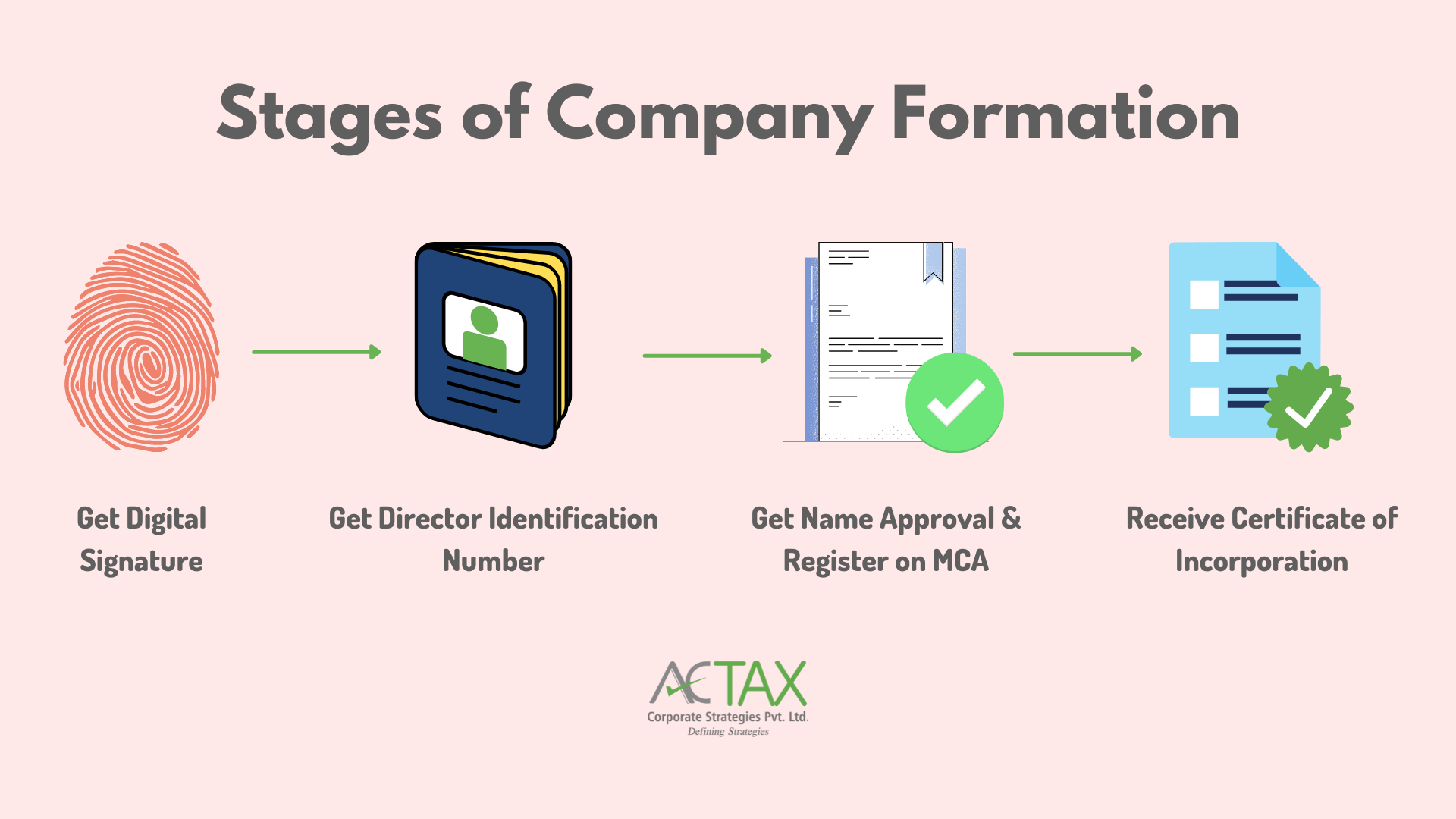Browsing the Complex Globe of Business Development: Insights and Techniques
As entrepreneurs set out to navigate the intricate world of firm development, it comes to be vital to gear up oneself with a deep understanding of the elaborate subtleties that specify the process. From selecting the most suitable business structure to making certain rigorous lawful compliance and developing effective tax obligation preparation methods, the path to creating an effective organization entity is riddled with intricacies.
Organization Framework Choice
In the realm of firm formation, the crucial decision of picking the proper company framework lays the foundation for the entity's legal and functional structure. The choice of service structure significantly influences numerous elements of the company, including taxation, responsibility, administration control, and conformity requirements. Business owners should carefully review the offered alternatives, such as sole proprietorship, collaboration, limited responsibility business (LLC), or firm, to determine one of the most appropriate framework that lines up with their organization goals and conditions.
One common structure is the sole proprietorship, where the business and the proprietor are taken into consideration the same legal entity. Understanding the nuances of each service framework is crucial in making an educated choice that sets a solid groundwork for the business's future success.
Legal Compliance Essentials
With the structure of a suitable business structure in area, ensuring lawful conformity fundamentals ends up being paramount for securing the entity's procedures and preserving regulative adherence. Lawful compliance is vital for firms to run within the limits of the regulation and prevent legal problems or prospective penalties. Key lawful conformity basics consist of acquiring the needed permits and licenses, adhering to tax obligation guidelines, carrying out appropriate data defense procedures, and abiding by labor laws. Failure to adhere to lawful requirements can cause penalties, claims, reputational damage, and even the closure of business.
To guarantee legal conformity, companies ought to consistently review and update their policies and treatments to reflect any type of modifications in guidelines. Seeking legal advice or conformity professionals can additionally aid firms browse the complex lawful landscape and stay up to day with advancing guidelines.
Tax Obligation Planning Factors To Consider

Additionally, tax planning ought to include methods to make use of readily available tax obligation reductions, credit scores, and motivations. By strategically timing revenue and expenditures, organizations can possibly lower their taxable earnings and general tax obligation problem. It is likewise important to stay informed about changes in tax laws that may influence business, adjusting approaches as necessary to stay tax-efficient.
Moreover, international tax preparation factors to consider might arise for companies operating across boundaries, entailing complexities such as see this page transfer pricing and foreign tax credit scores - company formation. Looking for advice from tax specialists can help navigate these details and establish a thorough tax strategy tailored to the firm's requirements
Strategic Financial Management
Purposefully managing finances is a basic element of guiding a company in the direction of sustainable development and earnings. Effective monetary monitoring involves a detailed approach to overseeing a business's financial resources, financial investments, and total financial wellness. One key component of tactical monetary monitoring is budgeting. By creating comprehensive budgets that line up with the company's purposes and goals, companies can allot resources effectively and track efficiency versus economic targets.

One more important facet is cash circulation monitoring. Checking cash inflows and like it outflows, taking care of capital successfully, and making certain enough liquidity are crucial for the daily operations and long-lasting stability of a business. Additionally, tactical monetary monitoring involves threat evaluation and reduction strategies. By recognizing monetary risks such as market volatility, debt threats, or regulative changes, companies can proactively carry out measures to guard their monetary stability.
Furthermore, economic reporting and analysis play an essential function in critical decision-making. By producing exact financial records and conducting extensive evaluation, businesses can get important understandings right into their financial performance, recognize areas for renovation, and make informed tactical selections that drive lasting growth and success.
Development and Expansion Approaches
To propel a business towards boosted market presence and success, calculated growth and development strategies have to be carefully designed and executed. One efficient approach for growth is diversity, where a company enters new markets or offers new services or products to take advantage of and minimize dangers on emerging chances. An additional strategy is market infiltration, concentrating on boosting market show to existing items in present markets via hostile advertising and marketing or rates approaches. In addition, critical my website partnerships or collaborations with other businesses can provide accessibility to brand-new sources, innovations, or markets that speed up growth. Acquisitions and mergings can be critical for broadening market reach, acquiring affordable advantages, or acquiring vital skill. It is vital for business to conduct thorough market research, economic analysis, and threat evaluations before getting started on any type of growth approach to make sure sustainability and success. By thoroughly intending and carrying out development techniques, firms can navigate the intricacies of expansion while optimizing value for stakeholders.

Conclusion
In verdict, browsing the complexities of firm formation calls for cautious consideration of business framework, legal conformity, tax planning, economic administration, and growth approaches. By tactically selecting the ideal business structure, ensuring lawful compliance, intending for taxes, taking care of finances effectively, and executing development techniques, firms can set themselves up for success in the affordable business atmosphere. It is necessary for businesses to come close to firm formation with a thorough and strategic frame of mind to accomplish long-term success.
In the realm of firm development, the vital choice of selecting the ideal company framework lays the structure for the entity's operational and legal structure. Entrepreneurs have to meticulously assess the offered alternatives, such as single proprietorship, partnership, limited liability business (LLC), or firm, to determine the most suitable structure that lines up with their service objectives and circumstances.
By creating comprehensive budget plans that line up with the firm's goals and objectives, organizations can allot resources efficiently and track performance against financial targets.
In final thought, browsing the intricacies of firm development needs cautious consideration of service framework, legal conformity, tax planning, financial monitoring, and growth strategies. By strategically selecting the right business framework, making sure lawful conformity, intending for tax obligations, handling finances efficiently, and implementing development approaches, firms can set themselves up for success in the competitive business setting.